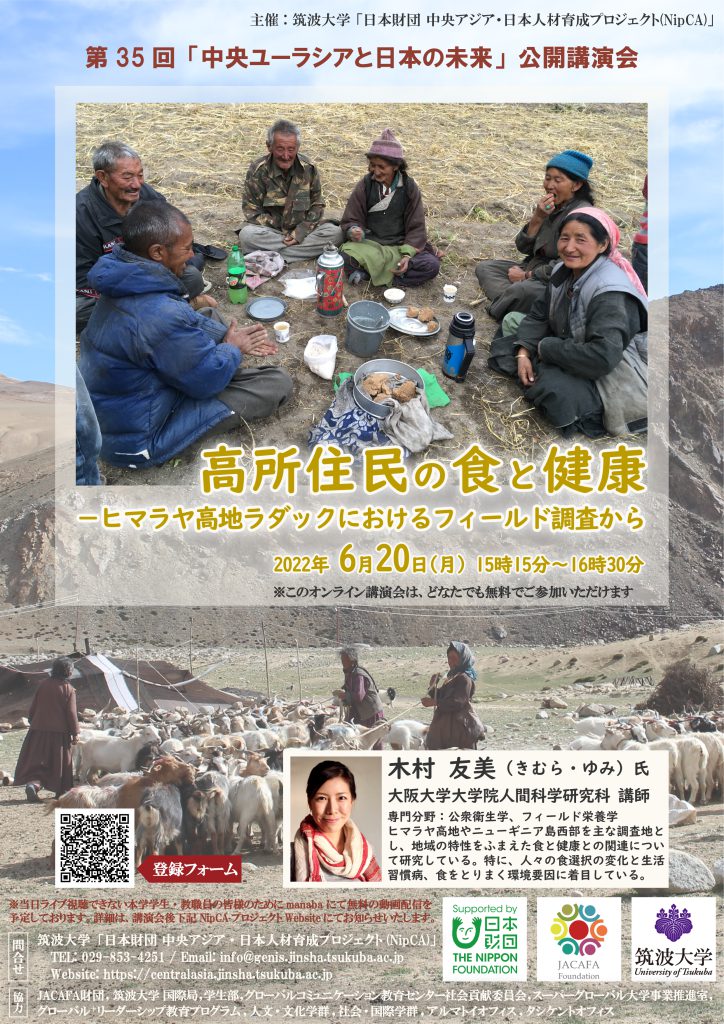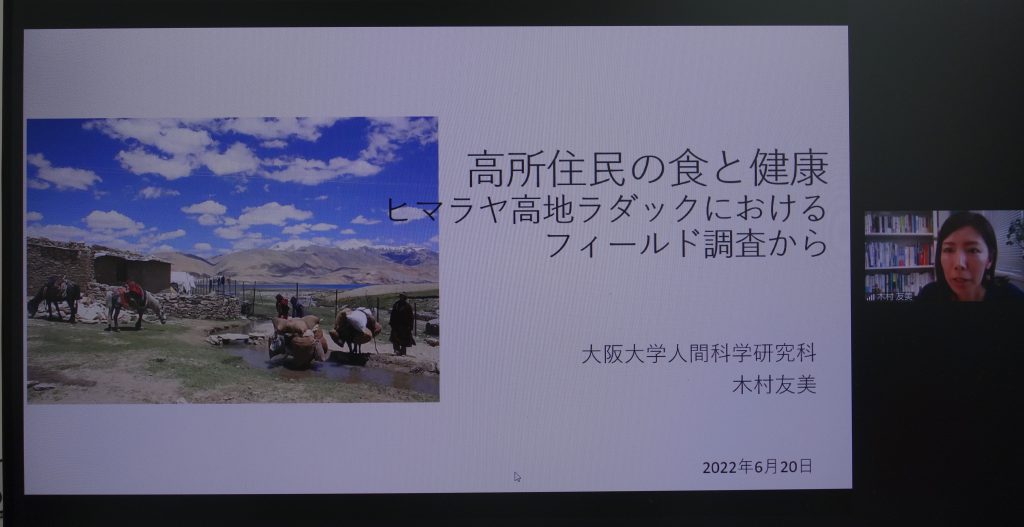On Monday, June 20, 2022, the Nippon Foundation Central Asia-Japan Human Resource Development Project (NipCA) held the 35th event in “The Future of Central Eurasia and Japan” public lecture series. For this occasion, we invited Yumi KIMURA, Ph.D., an associate professor at the Graduate School of Human Sciences at Osaka University, to deliver a lecture on “Nutrition and Health of Highlanders: Based on Field Research in Ladakh, Himalayan Highlands.”
Dr. KIMURA, who specializes in public health, has also pioneered a unique new research area – field nutrition, which looks at food from a regional perspective through field research. Her main research sites include the Himalayan highlands and western New Guinea, where she conducts regionally tailored research on the relationship between nutrition and health, focusing on changes in people’s food choices, lifestyle-related diseases, and environmental factors surrounding food.
Dr. KIMURA started her lecture by introducing the science of nutrition as the science of “food and body.” She briefly explained the process of metabolism occurring in the body after food is consumed. Nutrition depends largely on the following two environments: the natural environment as the source of food and distribution necessary to obtain food as well as the social environment which shapes food choices. Professor KIMURA emphasized that especially nowadays social environment, characterized by globalization, is undergoing significant changes, and nutrition is changing accordingly.
Dr. KIMURA described how people have physiologically and culturally adapted to high altitude, presenting photographic material taken in the area. As she explained, Tibetans are thought to have a constitution immune to altitude sickness due to the presence of genes that enhance circulation. On the other hand, the current hypothesis indicates that this constitution increases the risk of diabetes, and the number of diabetics has been increasing due to an aging population and changing lifestyles. She also showed pictures of Tibetan food and talked about cultural food adaptations, such as processed dairy products and noodles made from wheat sourced from the countryside.
In addition to Ladakh, located in the very north of India, Dr. KIMURA has also conducted research in Leh city and Domkhar village. To study local diets, she calculated the index known as the food diversity score for assessing food quality. In addition to this index, Dr. KIMURA conducted interviews to apply the 24-hour memory method for estimating the number of consumed nutrients. Her research results showed that there was a correlation between energy intake and age in the Ladakh region. However, significant individual differences were observed in Leh and Domkhar.
Dr. KIMURA also stated that changes in the social environment are associated with increased health risks using examples of changes in lifestyle associated with migration from high-altitude areas to urban areas and diet changes due to rationing of rice by the Indian government. The changes in the social environment are so rapid compared to the physiological adaptations achieved over a long period that the expansion of the adaptation balance has become a social problem. At the end of the lecture, Dr. KIMURA raised the question of capturing human change through food as a social problem to be addressed in many research areas.
The lecture was followed by a Q&A session where the audience had the opportunity to ask a wide range of questions about specific local dietary habits, changes in well-being, physiological adaptation to high altitude through genetic changes, etc. This event was an excellent opportunity for a lively exchange of views and understanding of the unique area of field nutrition that Professor Kimura has been researching.




